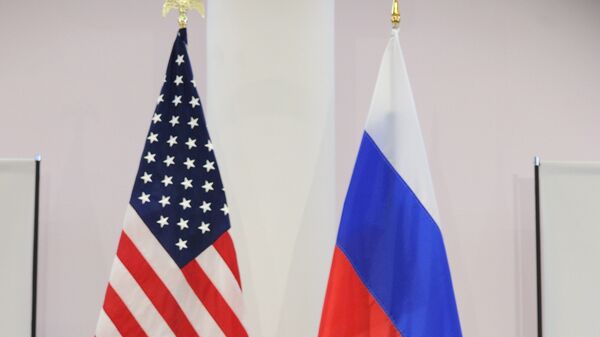It has been suggested by US politicians and analysts that Russia is militarily outmatched by the US because of the former’s supposed economic weakness.
There are problems with GDP or military budget comparisons, particularly if these are applied to Russia.
First, military power doesn’t directly correlate with GDP size. Second, in the case of Russia, the lack of any such correlation is glaringly evident. That Russia punches well above its economic weight is obvious to all. Suppose the American GDP is USD 17 trillion and that of Russia is RUB 71 trillion.
Which one is larger? At the going exchange rate of about one dollar to 75 roubles, America’s GDP obviously dwarfs Russian. But exchange rates move, and so do GDP values. The size of a nation’s GDP is to a large extent a reflection of the value of all of its assets, including its currency.
It’s fair to say that presently the US assets are considerably overvalued. That is mostly due to the huge amount of liquidity pumped by the Federal Reserve into the US economy. In most countries the excess liquidity would have long destroyed the currency. That this hasn’t happened in the US is explained mostly by the fact that the US dollar remains by far the most popular world trade and reserve currency, making it possible for Washington essentially to export inflation without much consequence to itself.
Because America is the world’s preeminent economic and military power, where there is trouble in the world, investors seek safety in US assets. But once the security premium, the US dollar’s world currency status and the other factors propping up America’s asset values are stripped away, one is left with a dramatically shrunk GDP.
But that reality won’t become apparent until it hits a trigger. And a war with Russia may prove such a trigger. A war with Russia, even a conventional one, will probably be unlike any other war America has ever faced.
The campaigns that the US is waging right now across the globe against smaller nations pose no threat to America’s security, and so tend to reinforce the asset security premium. But a war with Russia would be different, raising the specter of a nuclear armageddon. That possibility, depending on the intensity of the confrontation, would tend to nullify the security premium, prompting a flight from US assets. A fall in asset values would follow, accompanied by a drop in the US dollar exchange rate which would decimate America’s GDP.
For countries that must import their materiel, the value of their GDPs as expressed in US dollars is certainly critical. But Russia is different. It is economically self-sufficient and produces all the weapons it needs to fight an effective war. If Russia’ GDP in dollar terms falls, that won’t mean less tanks, aircraft or other equipment available to the Russian army. It will simply mean that in US dollars they have become cheaper to produce.
Finally, because of its global reach and the focus on fighting beyond its homeland, the US military requires more money than the Russian army to sustain its operations. Projecting power overseas is more expensive than defending your shores. And in a possible clash with Russia America would likely be striking across half the globe at Russia positions in Europe or Asia, complicating its logistics and raising the costs.
The US military’s offensive posture also saddles it with a relatively more expensive combat force structure. To be able to operate overseas effectively, the American military needs greater numbers of more expensive hardware, such as ships and aircraft, than any other country. Hence the mammoth American military budgets. The American military might is certain to last while the money is there for the borrowing. But when the world stops lending, all bets are off.







